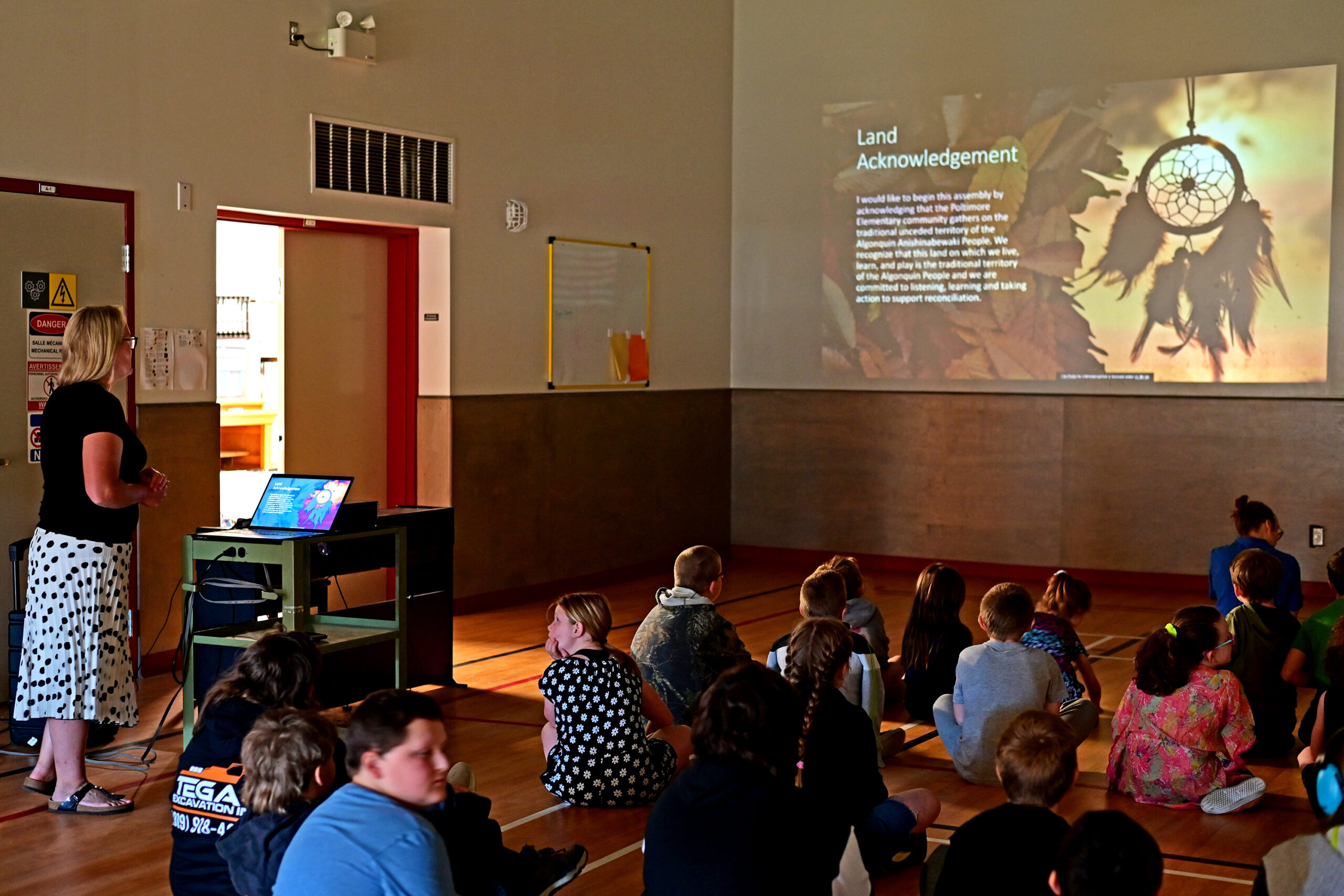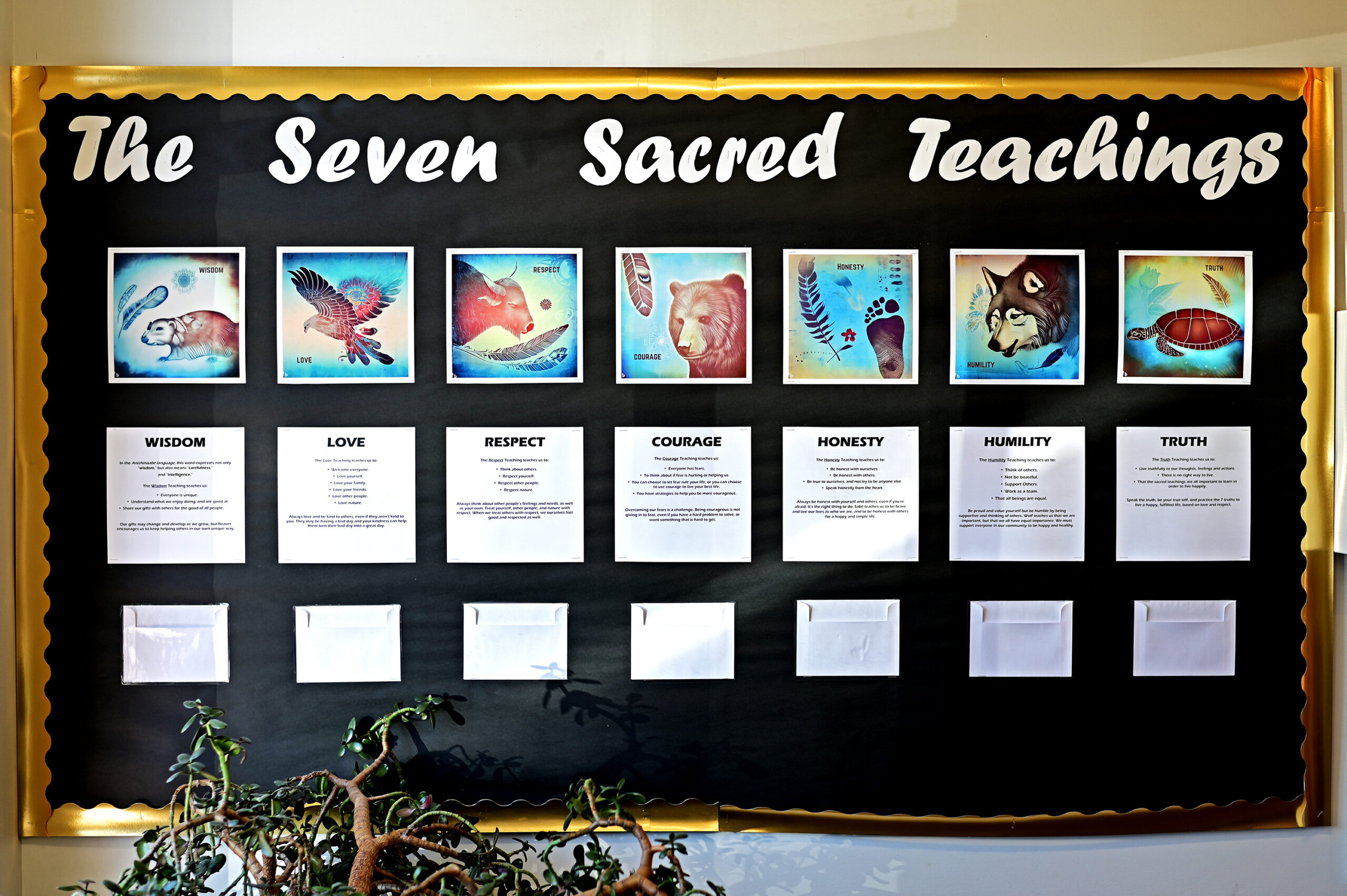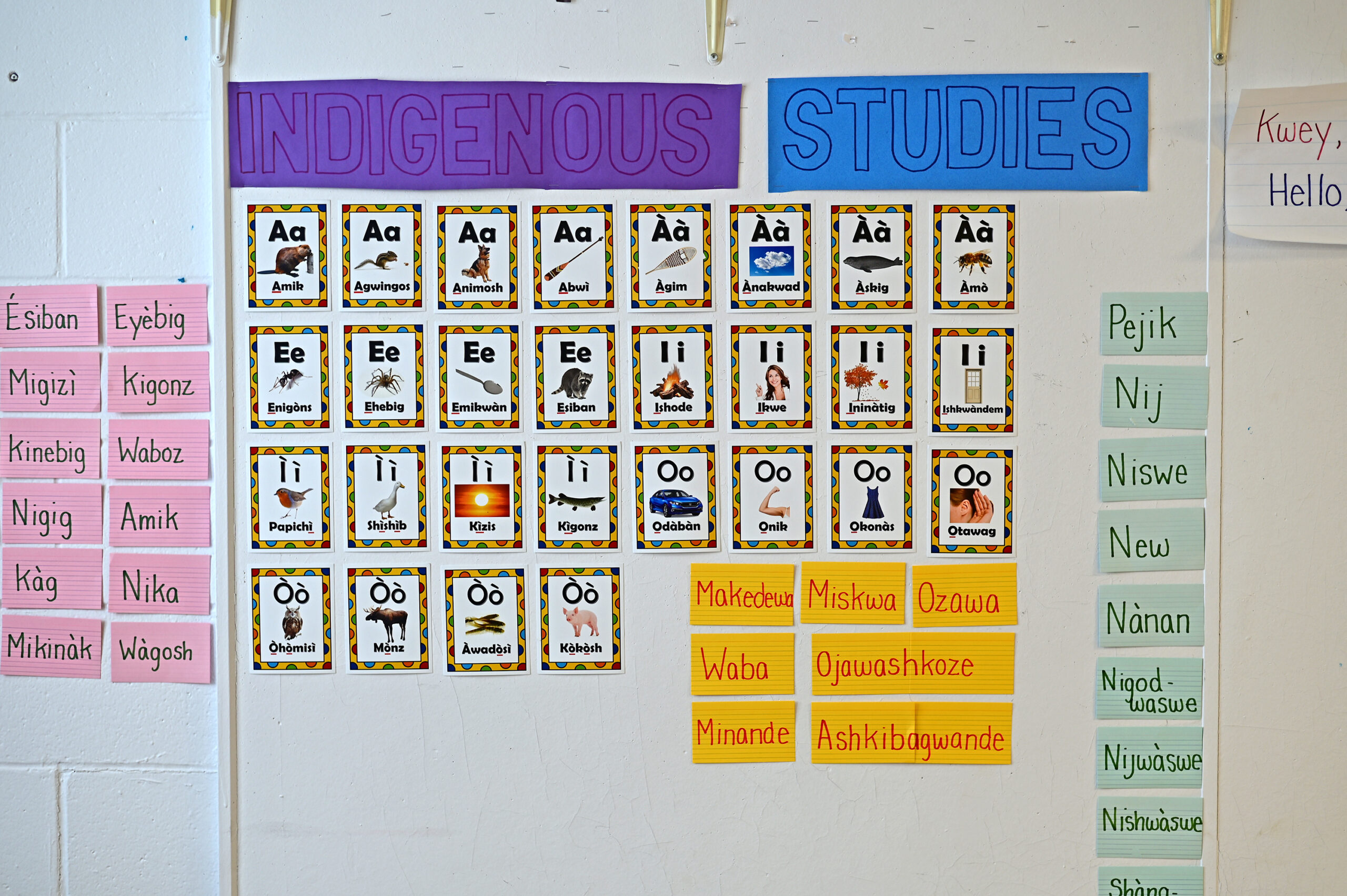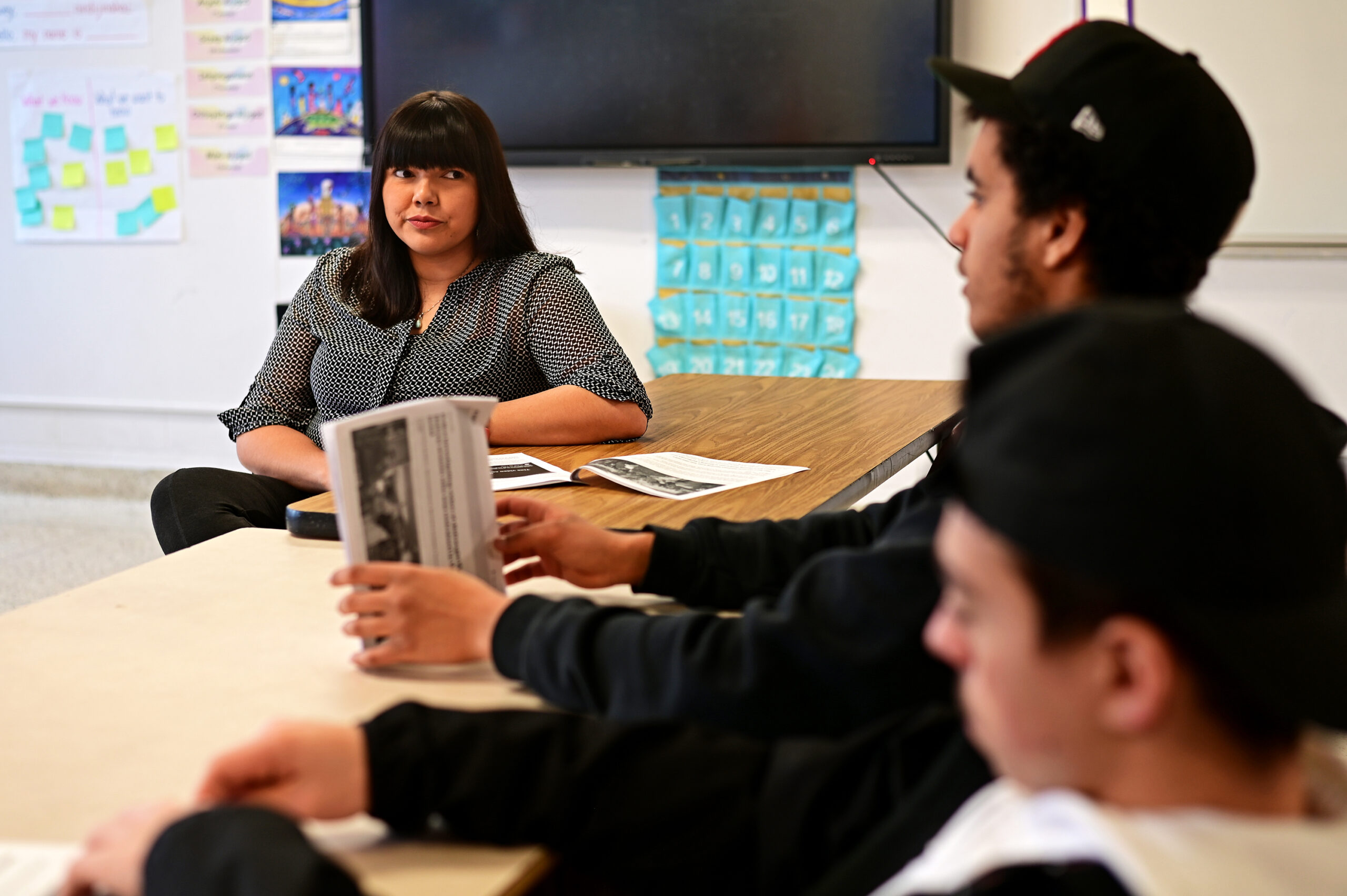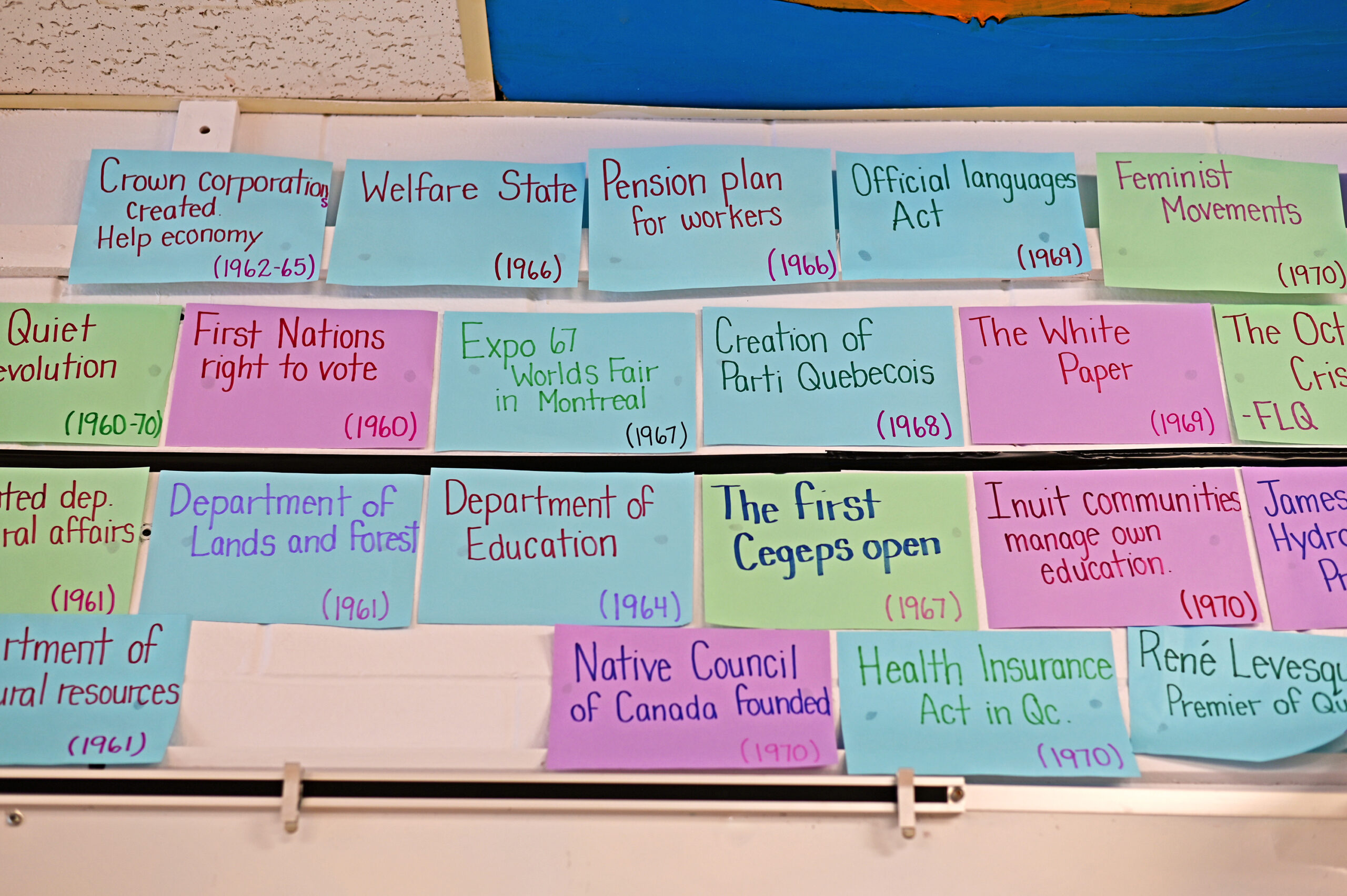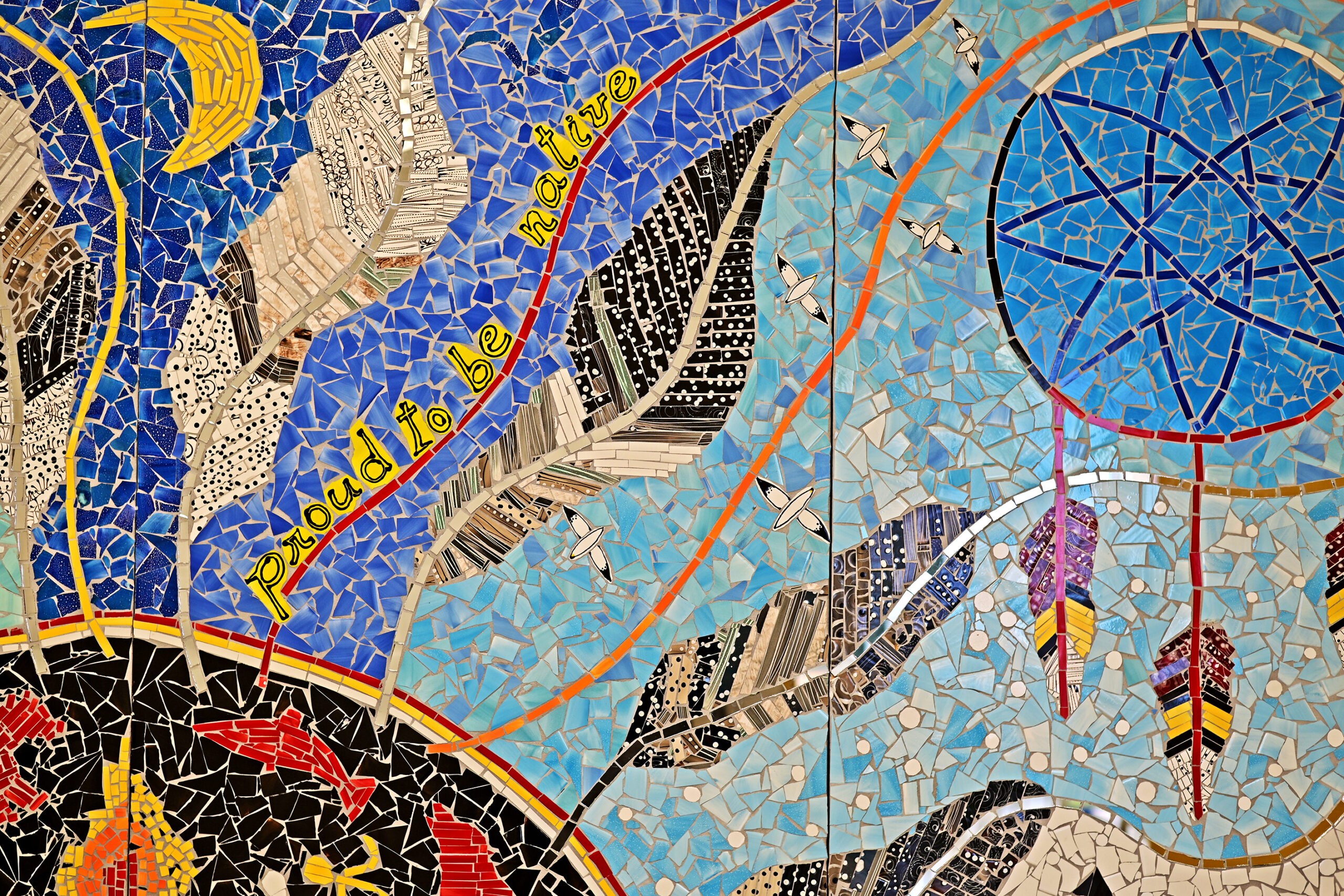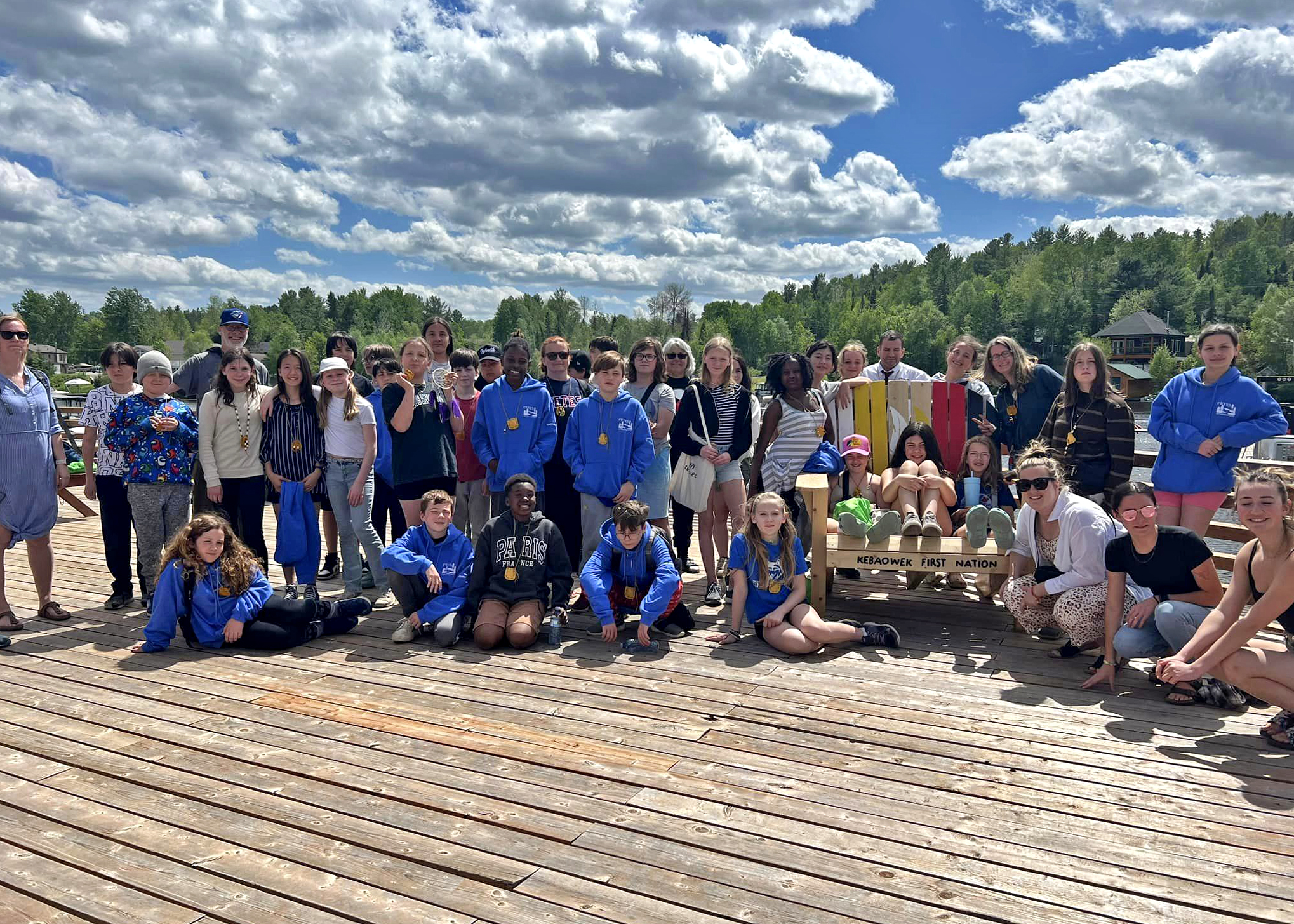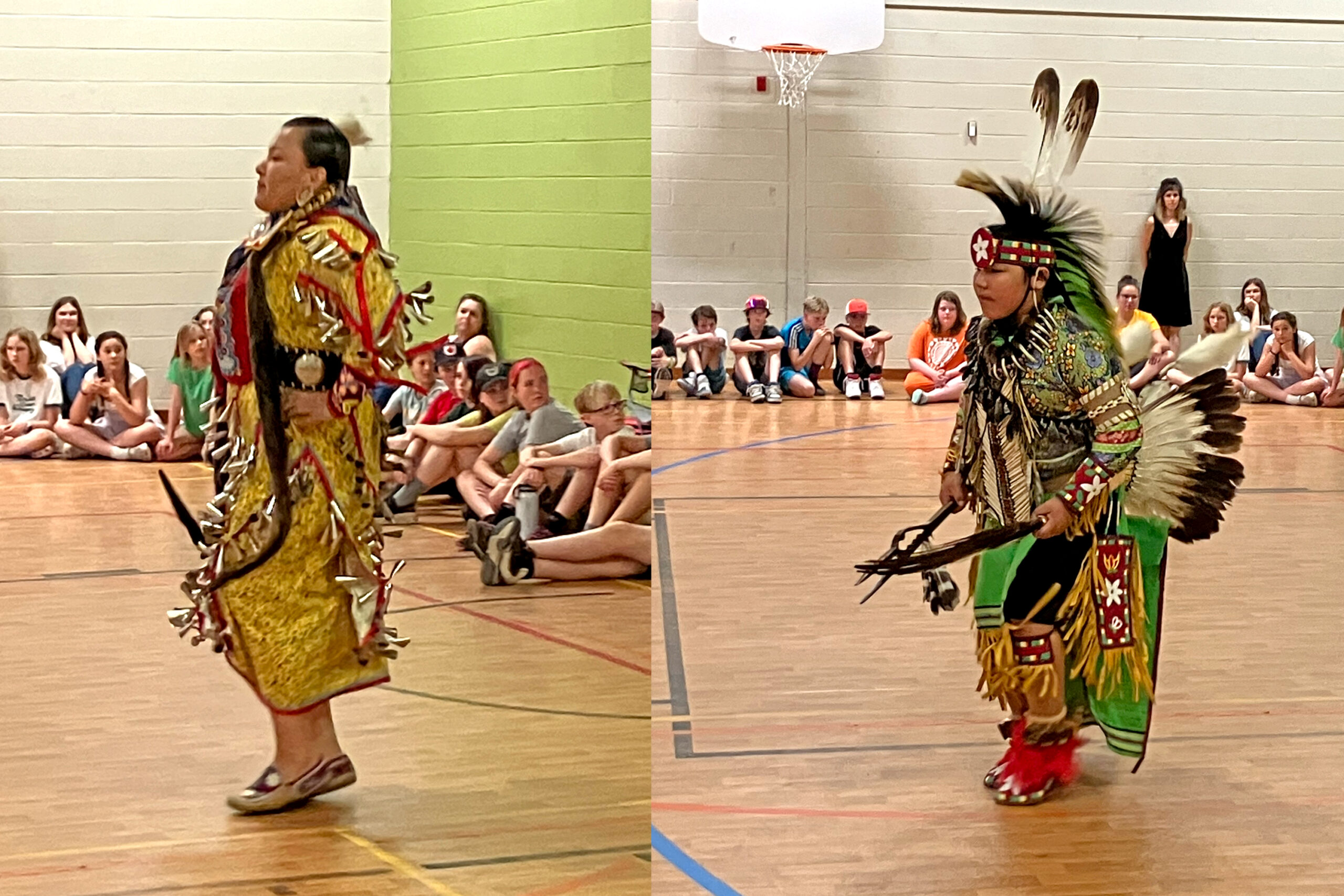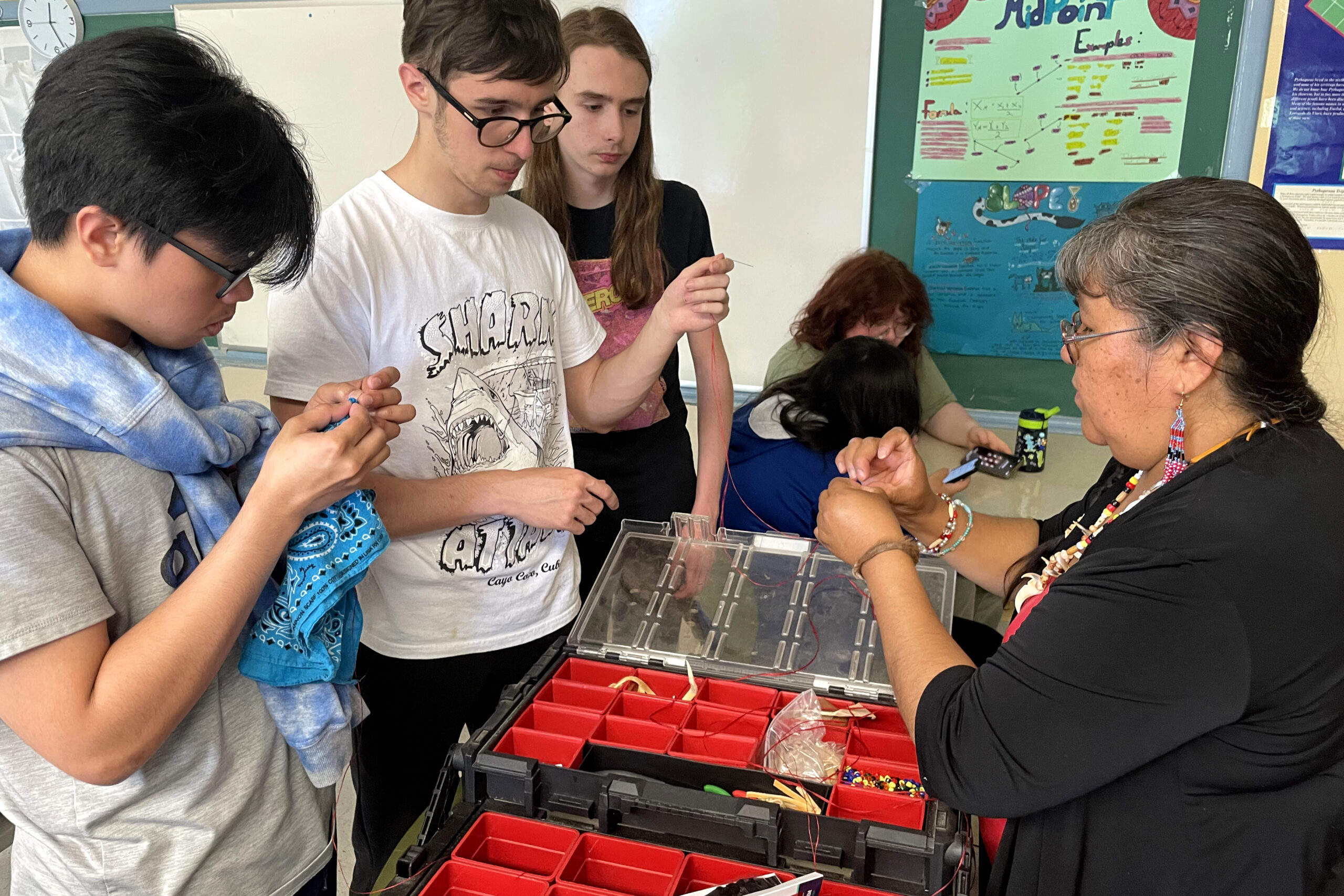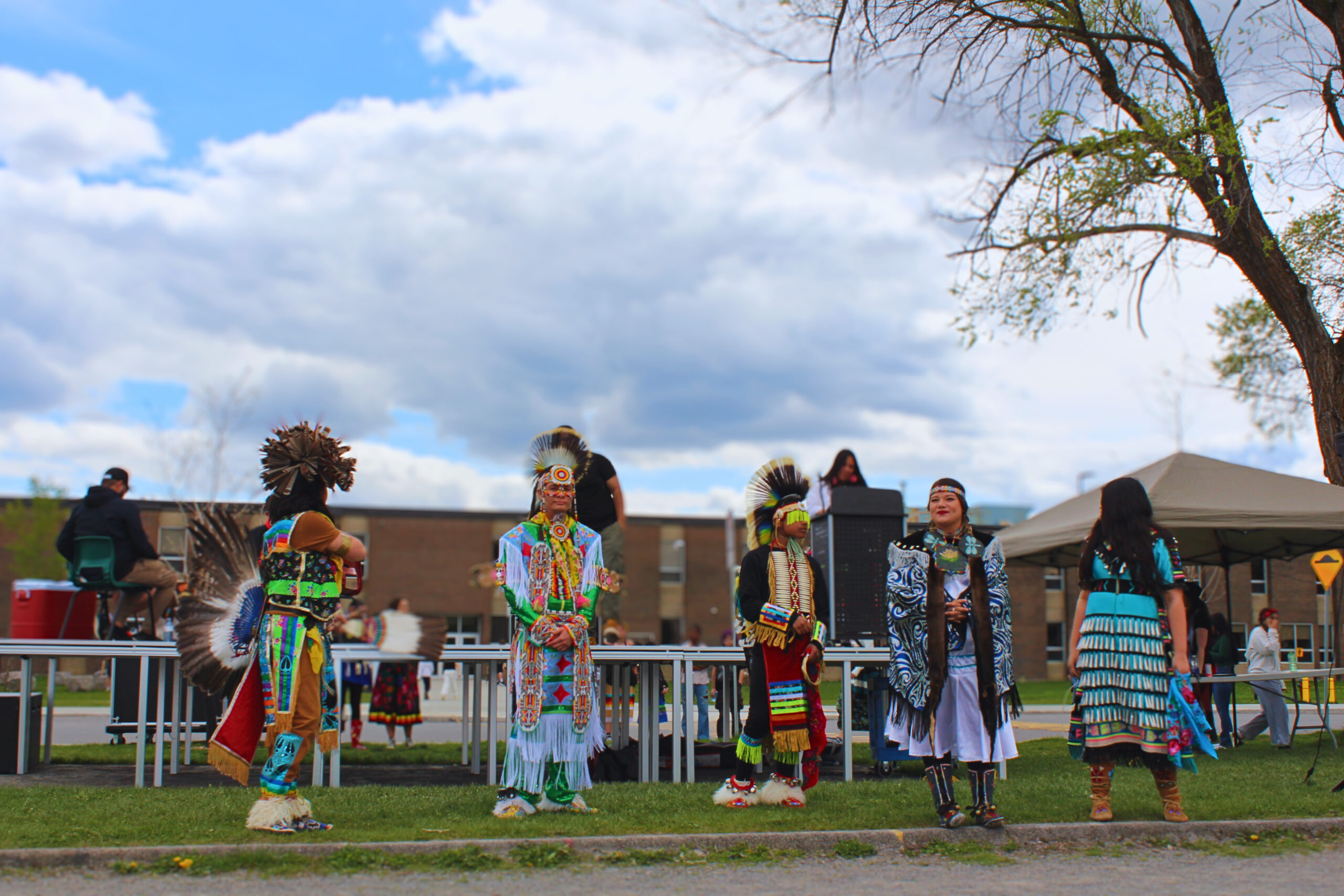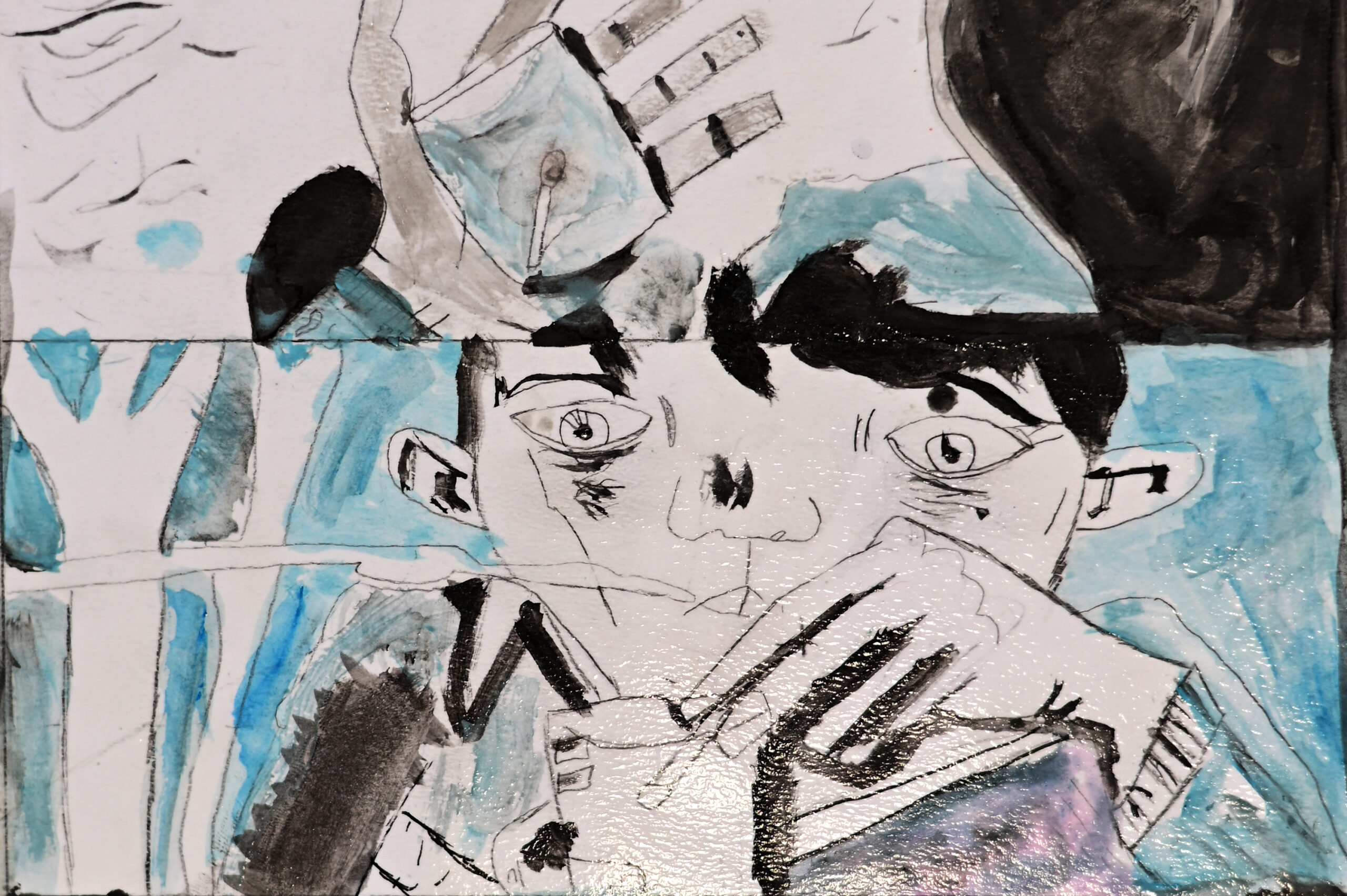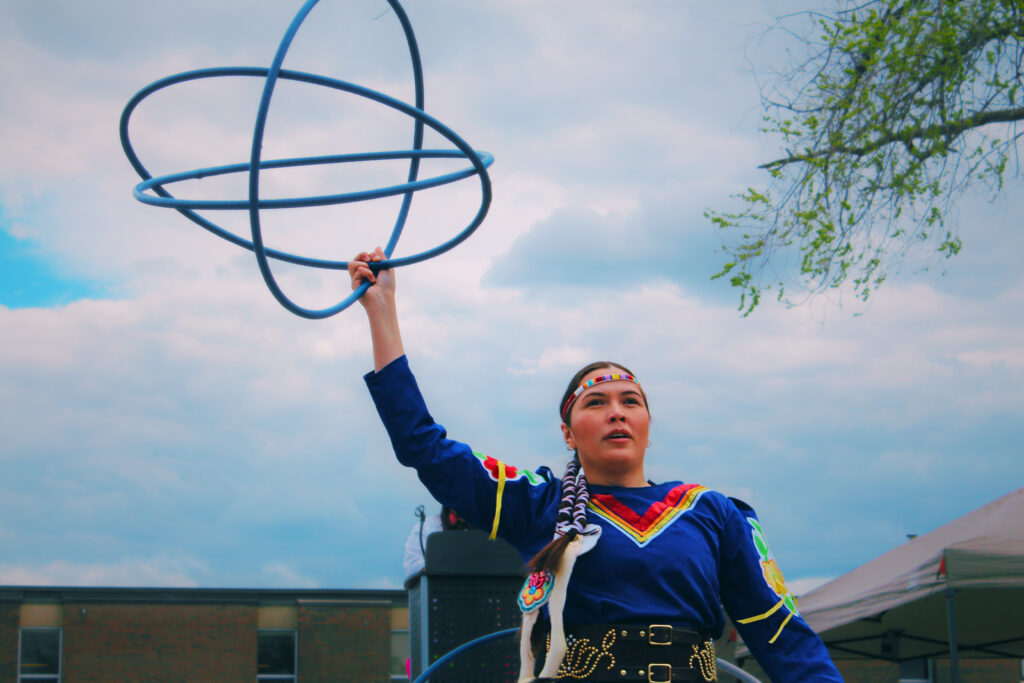
The Western Québec School Board acknowledges that the lands upon which we live, learn, play, and work are on the traditional unceded territory of the Algonquin/Anishinaabe people. We thank the Algonquin people for sharing these lands and commit, as an organization and as individuals, to an ongoing relationship that recognizes and respects the lands, traditions, and culture of the Algonquin/Anishinaabe people.
We recognize the importance of honouring the cultures and traditions of the First Nation, Métis and Inuit communities in Canada. We recognize and value the experiences, cultures, and traditions of our Indigenous communities. We are committed to listening, responding, supporting, and working together with our students, families, and communities.
In our work towards Truth and Reconciliation, Indigenous themes and perspectives are becoming more prominent across the Western Québec School Board’s schools and centres. Originating from a traditional Potawatomi and Ojibwe story, the Seven Grandfather Teachings are used as guiding principles at some of our schools.
At Poltimore Elementary and Lord Aylmer Elementary, monthly assemblies begin with a Land Acknowledgment followed by their respective principals discussing the Seven Grandfather Teachings and how they can be applied in everyday life.
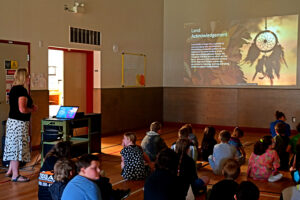
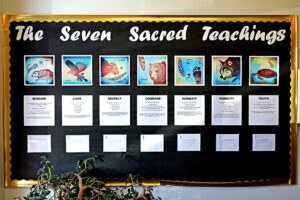
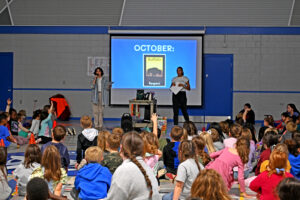
The Seven Grandfather teachings in English and Ojibwe are:
- Humility – Dbaadendiziwin
- Bravery – Aakwa’ode’ewin
- Honesty – Gwekwaadziwin
- Wisdom – Nbwaakaawin
- Truth – Debwewin
- Respect – Mnaadendimowin
- Love – Zaagidwin
At Maniwaki Woodland School, teacher Drew Wapachee McDougall created the first Indigenous Studies class at the WQSB for high school students nine years ago and continues to review and refine programming every year. Representation and learning from an Indigenous perspective optimizes learning, and not just for Indigenous students, but also for non-Indigenous students. Normalizing Indigenous modalities of learning benefits every student and broadens their scope of knowledge and capacity for empathy.
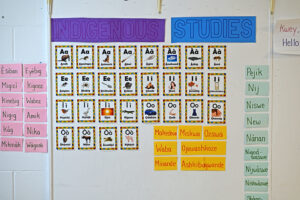
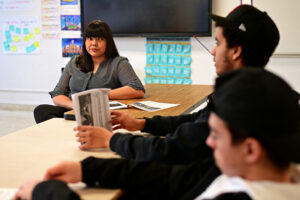
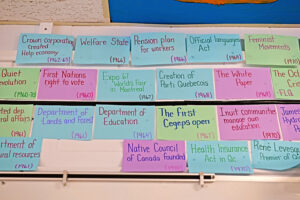
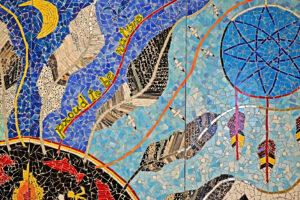
Now, as the WQSB’s first Indigenous Education Consultant, Ms. Wapachee McDougall hosts workshops and visits schools to help guide teachers in discovering ways they can incorporate Indigenous pedagogy into their curriculum. Her first step is to work with school staff to see what is envisioned for the school and to gauge cultural awareness with them. Different schools are at different places along this journey. “We’re all just trying to figure it out,” Drew shares. “If Indigenous students feel like their teachers are giving them space to practice and/or share culture, they feel there is more openness for understanding and like they have a place here.”
Many schools and centres also host Indigenous guest speakers as well and organize field trips to local reserves. Last month, students from G. Théberge and Pierre Elliott Trudeau Elementary (PETES) on a cultural exchange to Témiscaming, visited the Kebaowek First Nation reserve where they participated in a beautiful smudging ceremony and learned from staff members of the Kebaowek education department.
Wakefield Elementary enjoyed a small Pow Wow earlier this week to acknowledge National Indigenous History month. Students had the opportunity to absorb the stories and traditions of local Indigenous community members. Children at the school learned about grass dancers, jingle dancers and traditional singing and drumming. Principal Julie Fram-Greig noted it was a wonderful learning experience for everyone involved.
Earlier this month at Golden Valley School (GVS), secondary students had the chance to participate in cultural activities animated by Marlene Jerome and her colleagues from the Anishnabe Council of Lac Simon. Students were given the choice between beading, creating a healing necklace, and a medicine pouch. The activity was well attended.
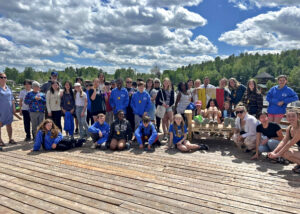
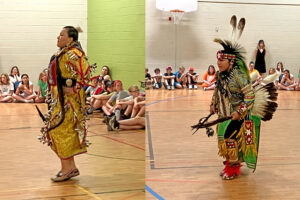
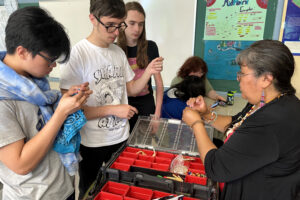
Advocacy is also practiced in our schools and centres and in support of the “Red Dress” campaign in May, which spreads awareness about missing and murdered Indigenous women and girls, students at the Pontiac Continuing Education Centre wore red or red dress pins for this important topic.
Also in May, Hadley Junior/Philemon Wright High School hosted their second annual Land Acknowledgement Festival. A true celebration of Indigenous culture, the event saw Indigenous guests showcase their talents and impart important teachings about their culture to students and members of staff at the school. There was food, jewelry, games, prizes and many, many smiles.
Music is also an effective medium to convey knowledge to students, and the award-winning Canadian folk band Twin Flames has visited both Buckingham Elementary and Greater Gatineau Elementary this school year, where they have entertained students and staff with concerts. Between their upbeat songs, Chelsey June and her husband Jaaji share Indigenous knowledge and history. For younger students, they included animal puppets to animate the shared information, leaving a lasting impression on the little ones.
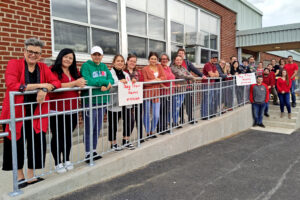
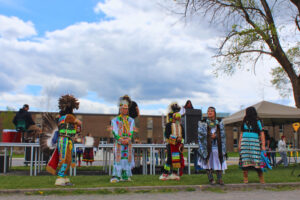

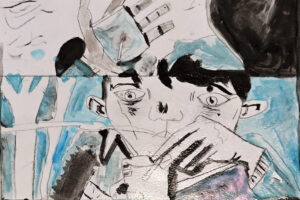
Incorporating Indigenous literature into English Language Arts (ELA) curriculum is another means of teaching Indigenous history. Grade 6 teacher Kathy Schuiteboer at PETES incorporates many Indigenous themes into her ELA class throughout the school year. She has had students write letters to the prime minister about improving the conditions on reserves, and she has also had students analyze novels, such as the graphic novel, Secret Path, by Gord Downie, illustrated by Jeff Lemire. Over the course of a month, they identify important themes, learn about the historical context presented, write poetry and create narrative art related to the text while also listening to the Secret Path album.
There are many other creative ways in which Indigenous pedagogy, themes and perspectives are being both taught and acknowledged in schools and centres across the WQSB, and the efforts of our dedicated staff to adapt and broaden their curriculum only increases. The Western Québec School Board thanks the dedicated personnel in its schools and centres who are committed to Indigenous teachings throughout the entire school year.
For more resources, please have a look at our Indigenous History Month resource page.
Special thank you to the school principals and centre directors for sharing the great work of their teams throughout the school year.
